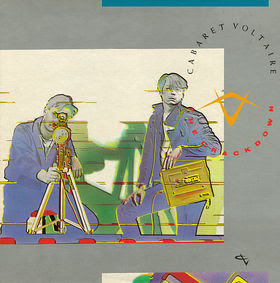Hyperion · 2010

I like to think of myself as a man without a purview, but some things are glaringly outside it. I'm uncomfortable, that is to say, reading a teen novel when my own teenage years are so far behind me that I don't even think of them nostalgically; I barely recognize that dude.
So part of why I'm reading this and talking about it is to interrogate that discomfort. The other part is plain inertia: I have this book because when a fourteen-year-old came up to the desk and asked me if the library had a copy I checked and said no, then looked it up and thought we probably should, so I Suggested A Title For Purchase and was automatically put on hold for it, and in due season the book came in, and I've had it for a week and haven't even looked at it really, and this is weird because I'm not used to being nervous around books.
I think it's the same impulse that has kept me stepping cautiously around teen-pop for most of my adult life: I'm afraid of being mistaken for (or mistakenly becoming) the creepy middle-aged guy who's
really really into teenage girl stuff. This is no doubt my own pathology, and has to do with the overt sexualization of teenage girlhood in too much of the discourse I've immersed myself in over the years. Not that teenage girls
aren't sexual beings — they're postpubescent mammals after all — but that that, even in aversion, shouldn't be my first thought about them. I feel like a creep even talking about this; and perhaps I should point out that it's all low-level back-of-the-mind stuff, not the kind of foregrounded thoughts which can be laughed at and dismissed.
But there's also the fact that when I was a kid (he said crotchetily) there wasn't any of this Teen Fiction nonsense, there were kids' books and grownup books and once I passed thirteen I read grownup books except for occasional return trips to Narnia or Middle-Earth. I'm just plain not used to the form. (Like, you can say shit as much as you want but fuck is always and forever f*ck? What the fuck kind of style guide is that?) And based on this experiment I doubt I'll be reading much more.
It's not that it was bad. Parts of it were; mostly stylistic issues (for someone who writes so incoherently I have extremely high standards for the kind of prose I'll deign to read) and an ignorance of computers so complete that the suicide-assistant website at the heart of its conceit might as well be coded by magic. Two examples will suffice.
The following sentence appears in the early chapters: "News you can use, Dad: losers aren't cool." The person who thinks it is not immediately engulfed in shame.
And in an important plot point, not only does an off-the-shelf desktop unit apparently enable fingerprint identification through the touchscreen monitor, but a website accessible by people everywhere in the world at all income levels (not that there's ever any sense that anyone in the story is anything but middle-class) requires fingerprint identification for access.
But after I got my grumpy old-man nitpicking out of the way, the emotional contours of the story caught me and rolled me swiftly to the end. It helps, perhaps, that I've had my own struggles with depression, suicidal fantasies, etc. (But my primary way of coping was only obliquely touched on in the book; in fact, the suicidal protagonist scolds at one point, "you don't joke about suicide." Bull and shit.) It also helps that Peters has a good eye for the contours of difficult relationships and the way that adolescent self-dramatization can easily feel suffocating, like there is no reality possible except the one you've willed yourself into believing. I'm not sure I ever entirely believed the motivations of any of the main characters, but I'm an agnostic here; my high school experience was different enough from the U.S. norm that I generally assume that other people's reports are accurate even when they spark no recognition in me.
And then there were things that the book did superbly. One of them was an awesome parody of bodicey romance novels, the kind of deep satire that proves the parodist knows and probably loves what she's mocking. Another was the black humor of the suicide-assistance website's lists of possible suicide options, ranking them by effectiveness, time, availability, and pain, Consumer Reports-style; and in fact our protagonist's slowly dawning realization that the website is populated by the same egotists and morons as the rest of the Internet is one of the truest things in the book. Finally, there was the only (surprisingly touching) healthy relationship in the book, between a (spoilers) cancer-surviving boy and his single mother, who relate to each other in a wholly recognizable combination of sarcasm and sentiment.
Was it a good book? I dunno. I don't know the field well enough to be able to compare it against anything. (The one thing it ain't is, as the inside flap copy claims, edgy. Publisha please. I've written darker shit in my sleep, and I hate dark shit.) I didn't hate it, as I thought I might a few chapters in. And hell if it convinces even one teen reader not to do something stupid before it's too late, it'll have done more good in the world than I ever have. Compared to that what's my aesthetic judgment worth?











